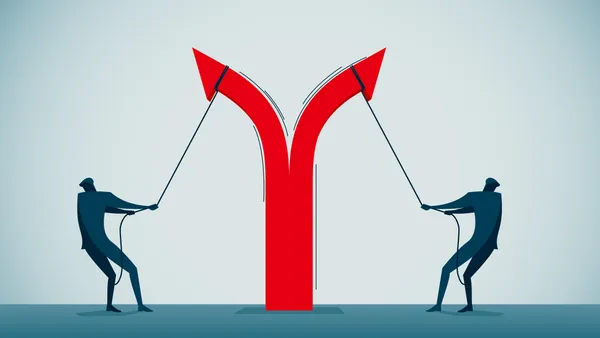In another boost for alternative securities trading systems, online retailer Overstock.com has won regulatory approval to issue company shares on the Bitcoin blockchain.
Overstock’s tø platform has been working on bringing equity trades and settlement to the blockchain since it was first announced in April 2015. According to Wired, the U.S. Securities and Exchange Commission has approved an amended Form S-3 that would allow the company to issue public securities through the platform.
“In traditional equity trades today, the markets operate on a trade date plus three days (T+3) settlement mechanism in which the exchange of payment and securities can take up to three days to settle,” Bitcoin Magazine said. “With the blockchain, it can be instantaneous and occur at the same time as the trade.”
Overstock.com CEO Patrick Byrne told Wired that issuing stock on the blockchain is “high on our list of priorities for 2016,” adding that the technology “can do for the capital market what the Internet has done for consumers.”
In July, Overstock.com sold the first “cryptobond” on the blockchain. FNY Managed Accounts agreed to buy the $5 million bond, with assurances in place in case the technology failed.
“TØ is now just one of several efforts to reinvent the financial markets via the blockchain,” Wired said. Nasdaq OMX, the company behind the Nasdaq stock exchange, is building a system that uses the blockchain to oversee trades in private companies, but Nasdaq says it could also apply similar technology to the public stock markets.
Overstock.com’s technology “can not only ensure that there’s security in the transaction, but it provides a full record of ownership for things like corporate bonds and stocks,” said Jeffrey Steiner, counsel with the law firm Gibson Dunn & Crutcher. “It can increase transparency, reduce costs, and remove the middleman — in this case remove a [traditional] exchange or a broker.”
In January 2014, Overstock.com became one of the earliest large companies to accept bitcoin as payment for its products, considered a major milestone toward mainstream acceptance of the cryptocurrency.












